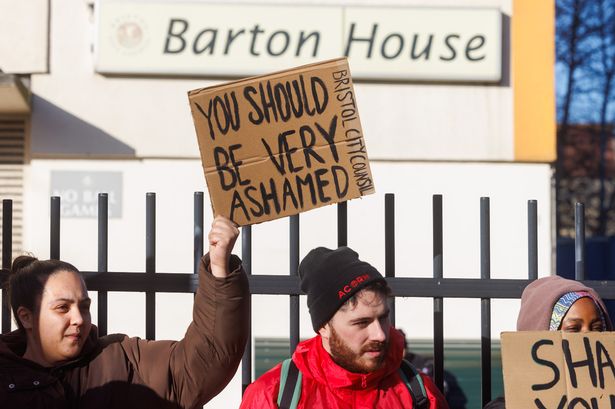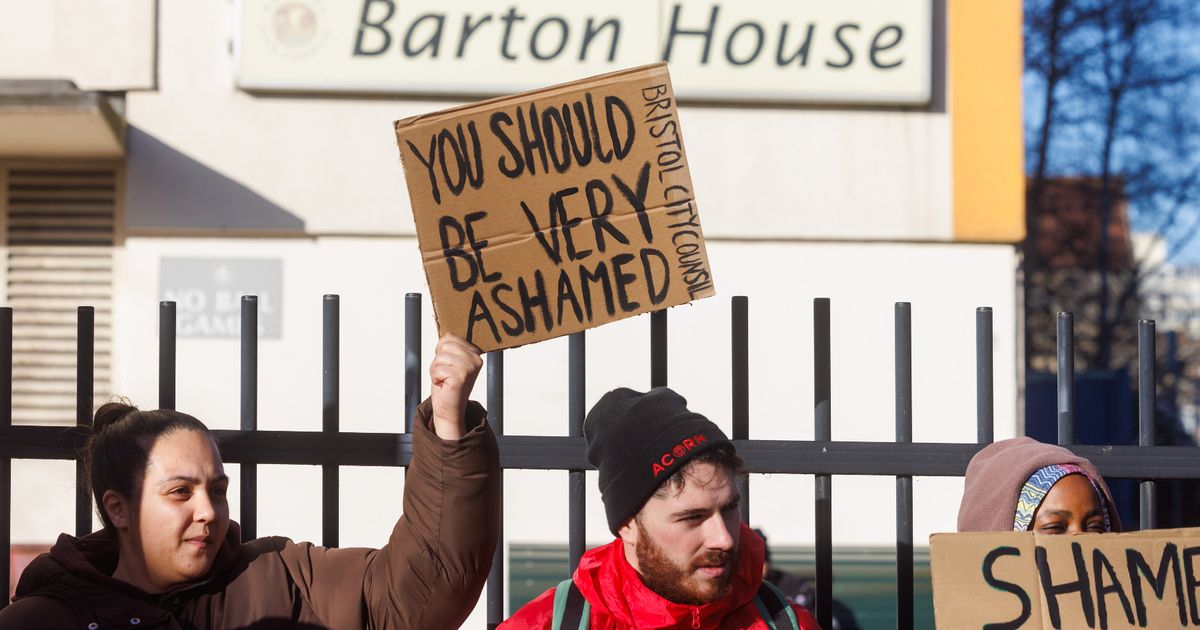The council leader offered to ‘make up an answer’ to a member of the public asking about transparency
14:06, 20 May 2025Updated 14:17, 20 May 2025
 It’s unclear if emails will be given to an inquiry into the Barton House evacuation(Image: PAUL GILLIS / Reach PLC)
It’s unclear if emails will be given to an inquiry into the Barton House evacuation(Image: PAUL GILLIS / Reach PLC)
Tensions flared in City Hall as council leaders faced claims of secrecy over the former mayor Marvin Rees‘ lost emails.
Despite councillors calling for better transparency and retention of emails, a new policy at Bristol City Council means emails will be automatically deleted after two years.
Emails sent by leading politicians and council staff often reveal how important decisions are made affecting hundreds or thousands of people.
One example is a tower block getting evacuated, but it’s unclear if emails about this will be given to an inquiry into what happened.
Green councillor Tony Dyer, the authority leader, faced questions about secrecy claims from campaigners, during a meeting of the strategy and resources policy committee on Monday, May 19. Appearing to become exasperated, he promised to ‘make up an answer’ the next time.
The row over emails began when the council refused to respond to a Freedom of Information request relating to Mr Rees, shortly before his time as mayor ended in May last year. The response revealed that the former mayor’s emails had been deleted, sparking the concerns.
Then in December, councillors from each party called for improvements to how the councils keep emails sent by politicians and staff, as well as responding to freedom of information requests.
Only three quarters of responses are responded to within the legal limit of 20 working days. The council receives on average 186 FOI requests every month.
Asked what the council will do to improve the rate of FOI requests that are answered, Cllr Dyer said: “There is additional work being put in. All I can say is that we’re continuing to look at how we can improve the process, because clearly it’s not where we would like it to be at the moment.”
One reason why campaigners say emails should be kept is to show what happened during times of crisis, such as when Barton House was evacuated in 2023. Before the local elections, the Greens promised to hold an inquiry into the evacuation of the council tower block, but that still hasn’t happened yet, more than a year since the party largely took control of the council.
Dan Ackroyd, a democracy campaigner, said: “Although retention of decision-making records is one aspect of why emails need to be kept, another aspect is to be able to hold inquiries, such as what events happened in exactly what sequence during an emergency. Will the emails in the week leading up to the Barton House evacuation be available to the inquiry?
“Don’t you realise how bad this is making you look, both yourself as council leader and the reputation of the council? There was a Green Party pledge of holding an inquiry into why the Barton House evacuation was so shambolic. I cannot see how this inquiry can be held if the emails have been deleted. This is indefensible.”
Before the local elections, the Greens also promised to give Barton House tenants priority in rehousing them elsewhere.
Many of the hundreds of people living there are traumatised by the evacuation, with one girl recently begging councillors to help her family move. This hasn’t happened yet either. The council leader said he was unable to answer questions on a potential inquiry.
Cllr Dyer said: “At the moment until we see how that’s going to be taking place, I can’t answer that question because that will be up to whatever investigation is undertaken. It’s not up to me to pre-empt the terms of that investigation.
“Depending on what the inquiry decides they need to be able to see, then if we have it available we will make it available. But I don’t know what’s available and what’s not available. Next time I’ll make up an answer for you — that will probably be more satisfactory.”
A new policy being drawn up will automatically delete emails sent by staff after two years, and after four years for councillors.
At the moment, these aren’t deleted automatically, but kept for the entire time the sender works or is elected to serve on the council. The reason is to save money, although it’s unclear how much cash would be saved by not storing some emails.
When somebody leaves the council, their emails are deleted after a month. In some exceptions, important emails could be stored for longer, although it’s unclear who will make this decision. Councillors on the committee said now might not be the best time to start deleting emails, given the ongoing row over transparency and secrecy.
Green Cllr Heather Mack, deputy leader of the council, said: “This is interesting because it’s a report about concerns of how we are storing things, especially around email.
“And it’s been used to talk about a plan to retain emails for less time. It doesn’t feel like an opportune time to be bringing this in, because the theme is how easy it is to access and be open with information.
“There has been a political culture for a number of years of how transparent and open we wish to be, that I would like to change because I think that it creates more problems than it solves. I certainly would like to cultivate that culture of openness, and I hope that can spread in the council.”
